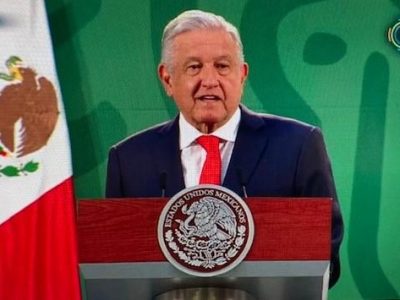Mexico y el Cambio Climático
Legal Planet: Environmental Law and Policy 2022-05-05

This being Cinco de Mayo, it seems like an appropriate time for a look at Mexico’s climate challenges. Mexico’s carbon emissions are about the same as those of Texas, the highest-emitting US state. Per capita emissions, however, are far lower, given Mexico’s much larger population. Mexico is also highly vulnerable to climate change. What’s the state of climate policy in Mexico?
The climate issue has to be placed in the broader context of Mexico’s situation. Mexico’s population is a bit more than Japan’s and a bit smaller than Russia’s. The birth rate has been falling for fifty years and is now just at the replacement rate. Mexico is a middle-income country, with a per capita income about 20% lower than Russia or China but four times as much as India. Mexico’s per capita figure, however, conceals a high degree of income inequality, with rural regions and areas in the south much poorer than urban areas like Mexico City. The geography is extremely diverse, featuring high mountains, deserts, and rainforest.
Because of its geography, Mexico is vulnerable to climate impacts. According to the World Bank, “Mexico’s geographic characteristics make it a highly vulnerable country to the adverse impacts of climate change. Its location between two oceans, as well as its latitude and topography significantly increase Mexico’s exposure to extreme hydro meteorological events.” Rising temperature and lower rainfall will require a shift in agriculture, and impacts in urban areas may be severe. As always, the poor will be the most vulnerable to climate change.
Unfortunately, there are doubts about how much progress Mexico will make in cutting emissions. Mexico’s climate commitment for 2030 under the Paris Agreement calls for cutting emissions 22%, cutting black carbon by half, and achieving net-zero deforestation. About three-quarters of emissions come from the energy sector, half of the rest from agriculture. President Andrés Manuel López Obrador (generally known as AMLO) could be described as a left-leaning populist. Like other populist leaders, he has not been friendly to climate action.
AMLO has come under criticism for his commitment to fossil fuel production and refining in Mexico. Recent changes in electricity regulation seem likely to increase the role of fuel oil in electricity production, which produces about 50% more carbon than natural gas. The result could be a sharp increase in Mexico’s energy-related carbon emissions, undermining Mexico’s ability to achieve its Paris targets.
There are many things to celebrate on Cinco de Mayo. Unfortunately, Mexico’s climate policy does not seem to be one of them.
The post Mexico y el Cambio Climático appeared first on Legal Planet.